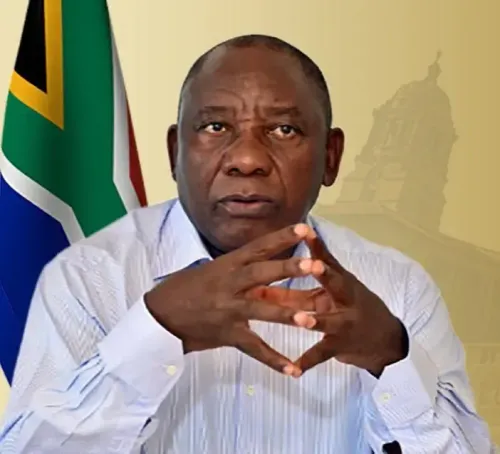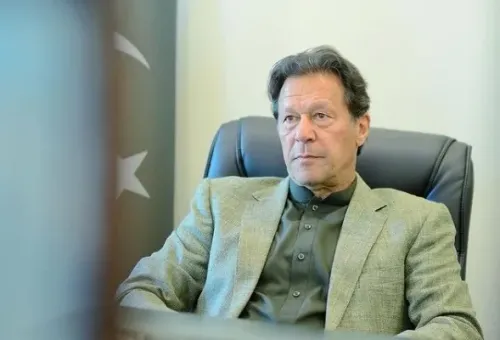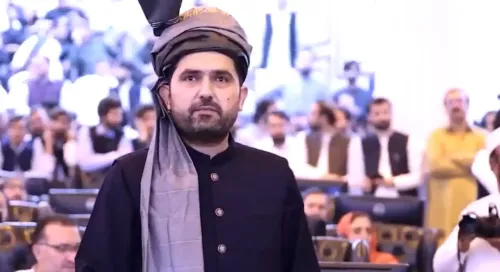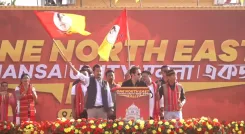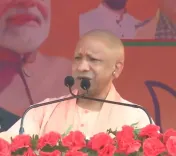Can India and Brazil Transform Trade Challenges into New Opportunities?
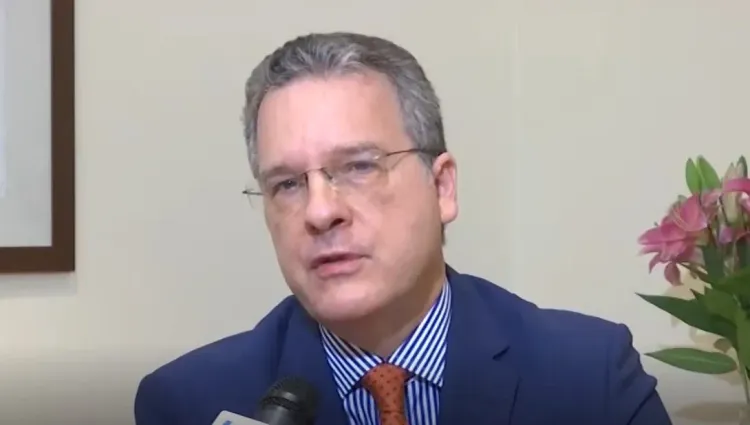
Synopsis
Key Takeaways
- Enhanced bilateral cooperation is a priority for India and Brazil.
- Trade challenges from the US tariffs are being viewed as opportunities.
- Both countries are focusing on key sectors such as Defence and agriculture.
- The partnership aims to foster technological exchange in agriculture.
- Brazil emphasizes the importance of multilateralism in trade.
New Delhi, Aug 9 (NationPress) In an exclusive interview with IANS, Brazil's Ambassador to India, Kenneth Felix Haczynski Da Nobrega, highlighted that India and Brazil are making concerted efforts to convert current global economic hurdles, particularly the tariff increases imposed by the US, into fresh avenues for enhanced bilateral collaboration.
He referenced a recent discussion between Brazilian President Lula and Prime Minister Narendra Modi, noting that the leaders are committed to devising a long-term strategic framework despite the prevailing uncertainties in global trade.
“The essence of our dialogue was centered around how we can transform these challenges into new prospects for our bilateral ties,” Da Nobrega stated.
Here is the complete interview:
IANS: With the world, including Brazil and India, facing a 50 percent tariff imposed by US President Trump, what is your reaction?
Da Nobrega: President Lula addressed this during his conversation with Honourable Prime Minister Modi. They engaged in a productive hour-long discussion regarding the future of our bilateral relations amidst this unpredictable economic backdrop. The global trade outlook has become increasingly uncertain due to these unilateral actions. Therefore, the focus was on finding ways to turn these challenges into new opportunities for our partnership. Just a month ago, your Prime Minister visited Brazil, and both leaders laid out a concrete path for our economic relations over the next decade.
IANS: How significant are Brazil-India relations in today’s geopolitical landscape?
Da Nobrega: Let me share a key statistic. In the past two years, we have seen 77 business missions from Brazil to India and over 40 from India to Brazil. Business interactions are thriving. Based on this mutual interest, our leaders outlined plans to enhance cooperation in the areas of Defence, energy, pharmaceuticals, DPIs, and agriculture. We have a clear roadmap.
IANS: How crucial is agricultural collaboration between Brazil and India?
Da Nobrega: Indeed, agriculture involves two critical tracks. Firstly, Brazil is prepared to export essential commodities such as pulses and edible oils to aid India's food security. Secondly, there exists a less-known aspect of technological cooperation, where we can exchange significant advancements.
IANS: How do you perceive President Trump’s tariffs on Brazil in the current global context?
Da Nobrega: Naturally, these tariffs will impact our trade with a historically significant partner, with whom we have cultivated robust ties over 200 years. Nonetheless, Brazilian and American societies are intertwined through business, cultural exchanges, and personal connections. These bonds remain strong.
IANS: What is Brazil's stance on the US's approach?
Da Nobrega: We are still contemplating the motivations behind the American government's stance. We are negotiating in a manner consistent with the significance of the Brazilian economy and our standing in the global arena.
IANS: How vital is the fertiliser trade between Brazil and India?
Da Nobrega: Brazil is a major importer of fertilisers from various countries. Regarding India, it has developed advanced fertiliser technology. Recently, IFCO signed a joint venture with a Brazilian firm to manufacture nano fertilisers in Brazil, which is a cutting-edge approach to enhancing productivity with fewer inputs.
IANS: How do you assess Prime Minister Modi’s role in India's progress?
Da Nobrega: It's not for Brazil to evaluate India, but over the past decade, we have witnessed remarkable growth and social advancement. However, it remains outside Brazil's purview to pass judgment.
IANS: President Lula has reportedly called on the WTO to reconsider US tariff actions. What is Brazil’s viewpoint?
Da Nobrega: Brazil has always championed international law. The agreements of the WTO and the multilateral trading system fall under this umbrella. Thus, Brazil emphasizes the importance of multilateralism and adherence to international law, which is why we submitted a statement regarding the violations of the multilateral trading system by the United States.
IANS: Which key sectors can Brazil and India expand their strategic partnerships in?
Da Nobrega: Defence is one area where both nations can establish joint ventures to further develop their Defence industrial capabilities. There are several other sectors as well.
IANS: How significant is Defence collaboration in the current global scenario?
Da Nobrega: Brazil and India have been nurturing a steady dialogue on Defence industry cooperation for the past two to three years. Numerous high-level missions have exchanged between both nations. While we cannot disclose specific sectors due to the nature of Defence discussions, it's worth noting that Embraer, our aircraft manufacturer, has recently established a full-fledged office in New Delhi and is keen to offer its KC-390 Millennium Air Defence Aircraft, including plans to produce parts in India under the 'Make in India' initiative.
IANS: How do you view India's response to the 50 percent US tariff, particularly in agriculture?
Da Nobrega: We are not focused on retaliating against any country. Our discussions revolve around how India and Brazil can collaborate more closely to ensure mutual economic growth and resilience amid this unpredictable geopolitical landscape. It's about exploring innovative ways to strengthen our partnership.
IANS: You mentioned future cooperation. Which sectors will define India-Brazil relations moving forward?
Da Nobrega: Key sectors include energy—both fossil and renewable—agriculture, Defence, pharmaceuticals, and DPIs.
IANS: What impact did PM Modi’s visit to Brazil for the BRICS Summit have?
Da Nobrega: It was a historic occasion as it marked the first state visit in over 20 years. The media coverage of this visit underscores its significance in Brazil. The decisions made during this visit led to a substantial joint statement.
IANS: What if President Trump does not engage with Brazil regarding tariff rollbacks?
Da Nobrega: We remain open to negotiations within certain bounds, as our sovereignty is non-negotiable. However, we are willing to engage with the United States concerning the economic implications of the President's actions towards Brazil. We welcome negotiations, but some matters are simply non-negotiable.

